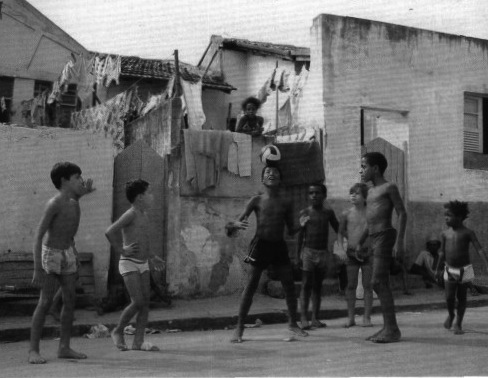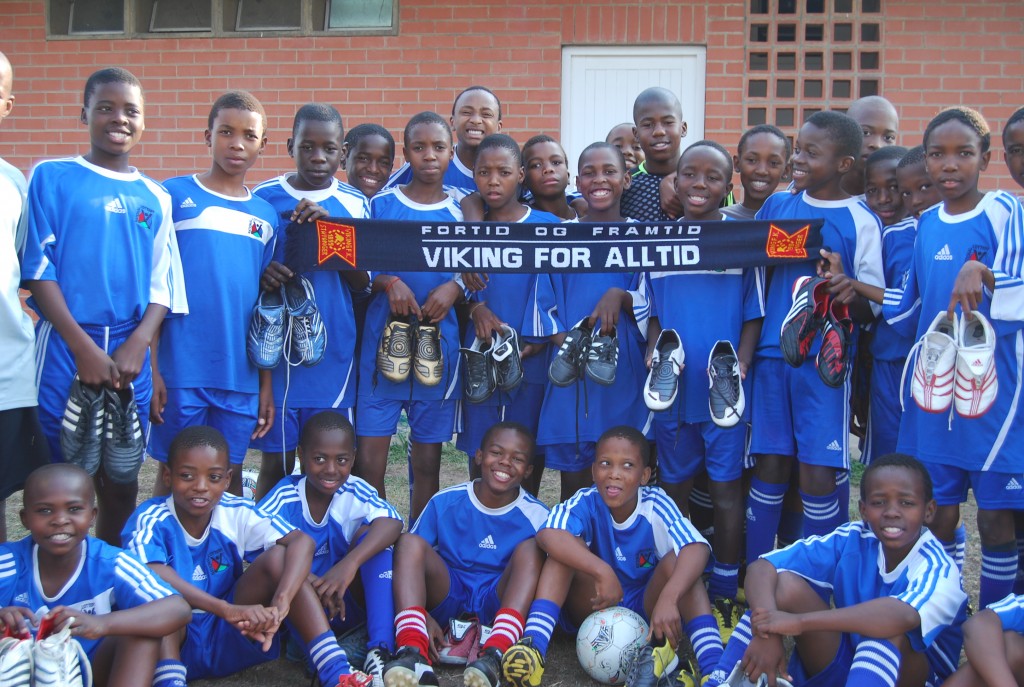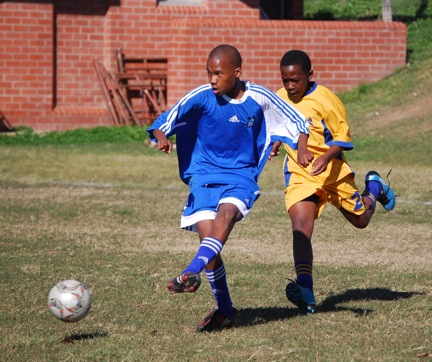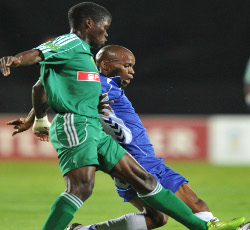Guest Post by *Liz Timbs
This summer, I was granted the opportunity to work as a teaching assistant (with Hikabwa Chipande) for Peter Alegi’s online course Culture of Soccer. Part of Michigan State University’s general education requirements, this 7-week interdisciplinary course explores global soccer in historical and contemporary perspective, analyzing fútbol’s changing relationship with race, class, gender, ethnicity, economics, and media. The course took place mainly on a self-hosted WordPress site on the open web. In this blog post, I want to reflect on some aspects of online teaching that not only changed the way I think about pedagogy and learning, but also altered the way I conceptualize the global game.
In the past year, my knowledge of fútbol has expanded exponentially. Beginning my doctoral program at MSU, it seemed that I was suddenly engulfed in the global game. My advisor, Peter Alegi, is considered one of the foremost experts on African soccer (see Laduma!, African Soccerscapes, and the just-released Africa’s World Cup); my roommate played club soccer in college; my dear friend Hikabwa Chipande is doing his doctoral research on soccer in Zambia; many of my friends are dedicated to various European teams, and the game continues to crop up in my readings for various courses.
Culture of Soccer (aka ISS328) allowed me to not only learn from the course materials, but also from the students who brought their own perspectives and generated insights via their weekly blogs. Here are a few things I learned as an instructor in this course about soccer and about the collaborative relationship between teachers and students.
1. Sport = Icebreaker
From the very first week, this course illustrated what a powerful icebreaker sport can be. Often, university students come in “blind,” with limited knowledge of the topics and themes being explored. In ISS328, the approximately 100 students may have entered with only a basic notion of global soccer culture, but their highly diverse sporting experiences and knowledge enabled them to connect to the material. In the first week, students were required to comment on this post on soccer as religion. Even in the very early stages of the course, students brought nuanced approaches to this subject, drawing on their experiences as fans, athletes, and citizens of the world. Students began a dialogue not only amongst themselves, but also with Peter, Chipande, and myself. Sport proved to be a fantastic icebreaker, which set the mood for the rest of the course.
2. Interdisciplinarity = Insight
The students for ISS328 came from a wide range of academic majors and specialties, ranging from advertising, packaging, and English to nursing, kinesiology, and early childhood development (to name but a few). These diverse disciplinary interests came to the surface most clearly in Week 3, during which we explored fandom through the Hillsborough Tragedy and Nick Hornby’s Fever Pitch. In particular, quite a few students who major in psychology and early childhood development offered nuanced analyses of Hornby’s relationships with his family and the connections these relationships had to his fanatical obsession with Arsenal (for example, see this blog post). These contributions seemed to inspire their fellow classmates to think about the readings in new ways and to incorporate those perspectives into subsequent writings for the course. Furthermore, they enhanced my understanding of the material and forced me to stretch my own intellectual development as I responded to their writing through comments and emails.
3. Fandom Is A Universal Language
ISS328 attracted athletes and sports enthusiasts, from the most serious to the loosely casual. These men and women were not only soccer players and fans, but also rowers, hockey players, and aficionados of a wide variety of sports. Again, in Week 3, students offered really insightful comparisons between their own experiences as sports fanatics with that of Hornby’s obsessive relationship with the game (for example, see this post, this post, and this post, as just a few examples from that week). As a diehard Pittsburgh Steelers fan myself, I also drew comparisons between my own love-hate relationship with my beloved Steelers and Hornby’s conflicted relationship with Arsenal. The students (and myself) were able to relate to the material on a personal level, making the online assignments much more meaningful when compared to, say, a didactic recounting of a week’s readings and videos.
In short, this fútbol course taught me a lot about the importance of sport in society and its unifying potential. Since the course ended, I have continued to read more on soccer in general (The Ball Is Round, Soccernomics, How Soccer Explains the World), and in South Africa (More Than Just a Game, Development and Dreams). I hope to incorporate football and other leisure practices into my research on the history of the HIV/AIDS epidemic in KwaZulu-Natal, South Africa. Furthermore, I intend to join the Football Scholars Forum at MSU, as well as watch many more matches throughout the year with friends and colleagues. “Culture of Soccer” taught me so much and contributed to my own development as a scholar and a fan. For me, the game has only just begun, and I am excited to see where it takes me.
*Liz Timbs is a PhD student in African history at Michigan State University. Her research interests are in the history of health and healing in South Africa, including the AIDS epidemic; the professionalization of medicine; masculinity studies; and comparative studies between South Africa and the United States. Follow her on Twitter: @tizlimbs



